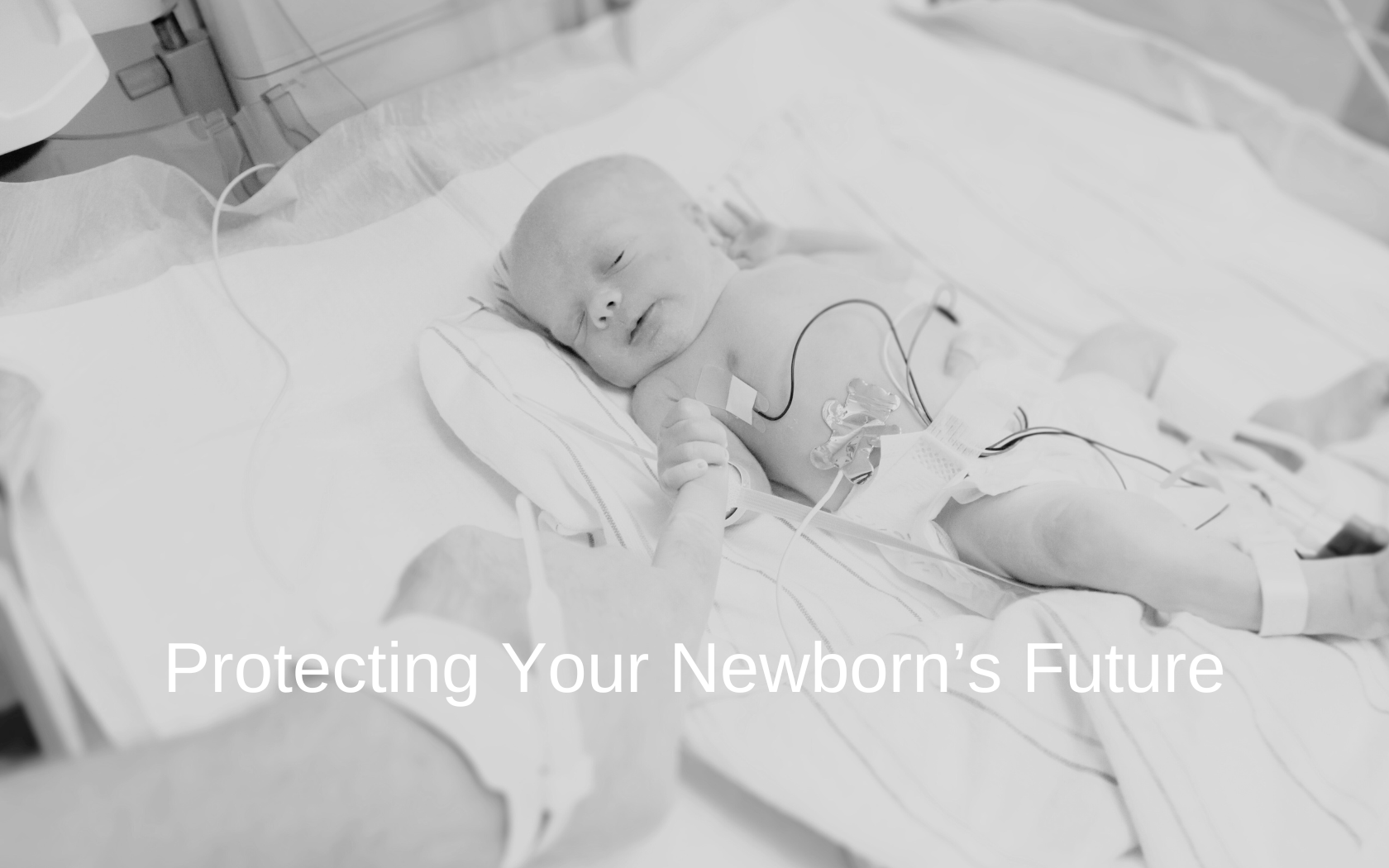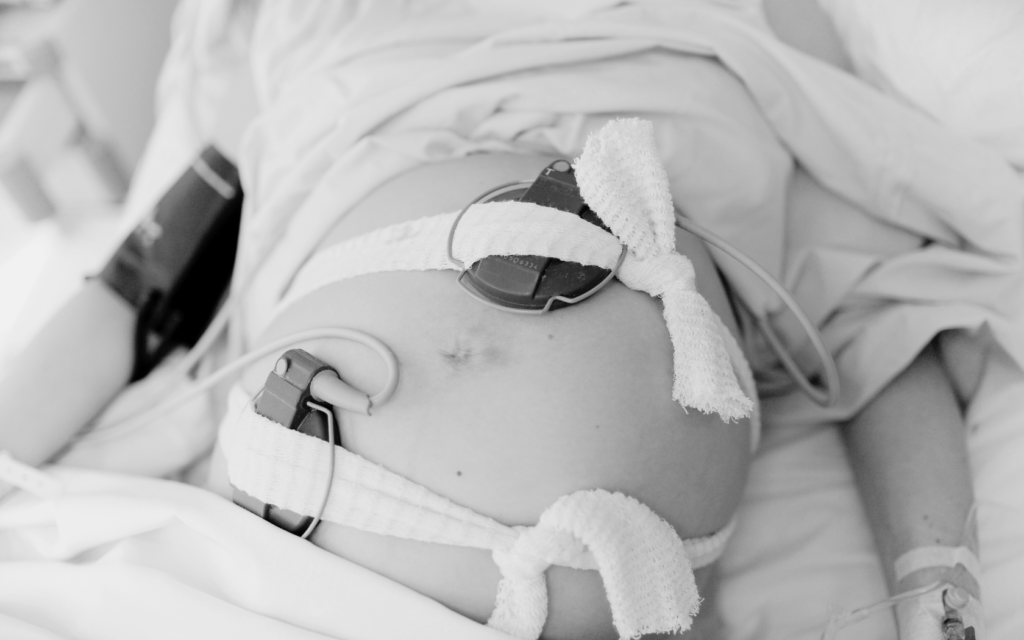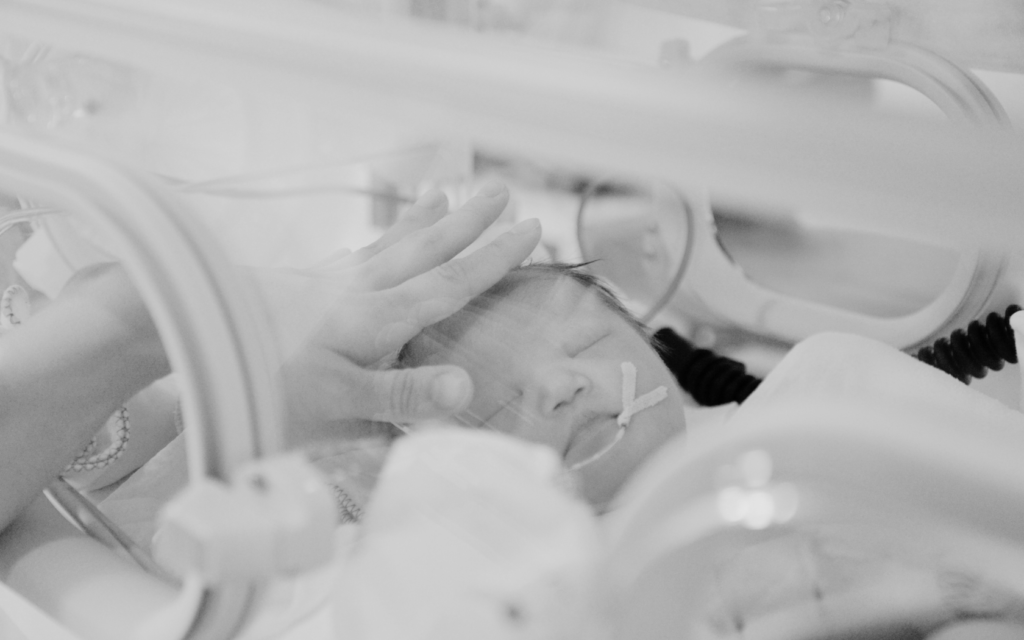The birthing process is like an extreme sport: dangerous, but usually ending well. Minor birth injuries in newborns, like scrapes or bruises, are fairly common.
Serious injuries are thankfully rare. But not rare enough. In this blog post, we’ll explore common birth injuries, the causes of those injuries, and what to do if you believe you or your baby are a victim of malpractice.

What are Birth Injuries in Newborns?
Birth injuries in newborns are wounds or trauma from the delivery process. These injuries can be minor or serious. For example, a baby might have bruises from passing through the birth canal. A serious birth injury would be a broken bone or brain damage from oxygen deprivation.
Some confuse birth injuries in newborns with birth defects. But they’re not the same. Birth defects occur while the baby is still developing in the womb. They’re often due to genetic factors or environmental influences. They include conditions like Down syndrome or congenital heart defects. Those conditions are present at birth, but not caused by the birth process.
Common Birth Injuries in Newborns
Many common birth injuries in newborns heal quickly with proper medical care. Bruising, swelling, and Caput succedaneum, which is swelling of the scalp, are among them.
Bruising isn’t usually a cause for worry. But some birth injuries are serious and require extensive medical intervention. These include:
- Fractured skull or collarbone
- Spinal cord injuries
- Brachial plexus injuries (like Erb’s palsy)
- Intracranial hemorrhage (bleeding in the brain)
- Oxygen deprivation
- HIE (hypoxic-ischemic encephalopathy)
- Facial nerve damage
- Kernicterus (severe jaundice leading to brain damage)
- Severe infections (such as sepsis and meningitis)
- Meconium aspiration syndrome (breathing problems due to inhaled meconium)
- Shoulder dystocia complications
These newborn birth injuries could completely upend a baby’s health and future. They could mean a child will need lifelong medical care.

Causes of Newborn Birth Injuries
The main causes of newborn birth injuries are complications during labor and delivery. Labor can put a lot of stress on both mother and baby. For many, it’s the most dangerous “feat” attempted in a lifetime! That’s especially true when the mother has certain health problems or is delivering multiples.
The list of potential newborn birth injury causes is quite long. But here are some of the most common causes:
- Prolonged labor
- Large babies (macrosomia)
- Use of forceps or vacuum extractors
- Oxygen deprivation (birth asphyxia)
- Abnormal birthing positions
- Delayed C-sections
- Breech births
- Excessive pulling or twisting during delivery
- Maternal health conditions (like diabetes or preeclampsia)
- Premature birth
- Placental issues
- Umbilical cord problems (such as compression, twisting, and knots)
- Inadequate prenatal care
- Medical errors (such as incorrect medication or incorrect dosage)
Suing for Birth Injuries in Newborns
Like an extreme athlete, a doctor undergoes extensive training to hone their skills. Yet, accidents can happen due to lapses in judgment, forgetfulness, or negligence.
There are legal guidelines that determine whether you can sue for birth injuries in newborns. To sue, you must prove the doctor or hospital failed to meet the standard of care. This means showing that their actions were not what a competent doctor would have done.
To build a case, you’ll need evidence like medical records and expert testimonies. If successful, a lawsuit can provide compensation for medical bills, future care, and emotional distress.
Remember, doctors and hospitals almost always downplay their role when a baby gets injured. So trust your instincts. There’s a chance your child’s injury may have been preventable.
If you’re on the fence about whether to take legal action or not, consider calling a lawyer and scheduling a free case review. An attorney who specializes in medical malpractice can tell you whether or not your doctor’s actions meet the legal definition of negligence.

Examples of Malpractice-Related Birth Injuries
Some birth injuries in newborns are unavoidable. Others stem from negligence or medical malpractice.
Here are some examples of negligence-caused birth injuries:
- Brain damage due to failure to monitor and respond to fetal distress
- Cerebral palsy from delayed C-sections
- Skull fractures from misuse of delivery tools like forceps or vacuum extractors
- Brachial plexus injuries from improper use of delivery tools
- Severe complications from administering incorrect medications or dosages
- Newborn infections from failure to diagnose and treat maternal infections
- Significant injuries from improper handling during delivery, such as excessive pulling or twisting
If your child suffered a serious birth injury and you suspect malpractice, call us. We’ll discuss your legal options. Negligence-related birth injuries deserve justice and compensation to cover your child’s past and future medical needs.
Birth Injuries in Newborns FAQs
That depends on how severe the injury is. If the baby has only minor nerve injuries, those could heal on their own with minimal or no treatment. But some injuries, like fractures or more serious nerve damage, might require surgery, medication, or other medical interventions.
If there’s a brain injury caused by lack of oxygen, the baby might receive a combination of therapies, including cooling therapy. Some babies need long-term care and physical or occupational therapy to support their development.
An analysis published in 2021 states that the prevalence rate of neonatal birth trauma is 31.1 per 1000 hospital births. That number includes mild injuries, and 80% of them are scalp injuries. Major birth injuries have decreased in the past few years. The rate now stands at 4.67 per 1000 hospital births.
How do I know if my newborn is injured?
Not every injured newborn will have obvious symptoms. But here are some signs you can look for:
– Bruising or swelling on their face or head
– Not moving one arm or leg
– A weak cry
– Trouble sucking and swallowing
– Arched back while crying
– Floppiness
– Excessive drooling
– Seizures
– Missing milestones as they grow
If you notice any of these symptoms, make sure you tell your pediatrician. They can perform tests to see if your child has an injury that needs special attention.




